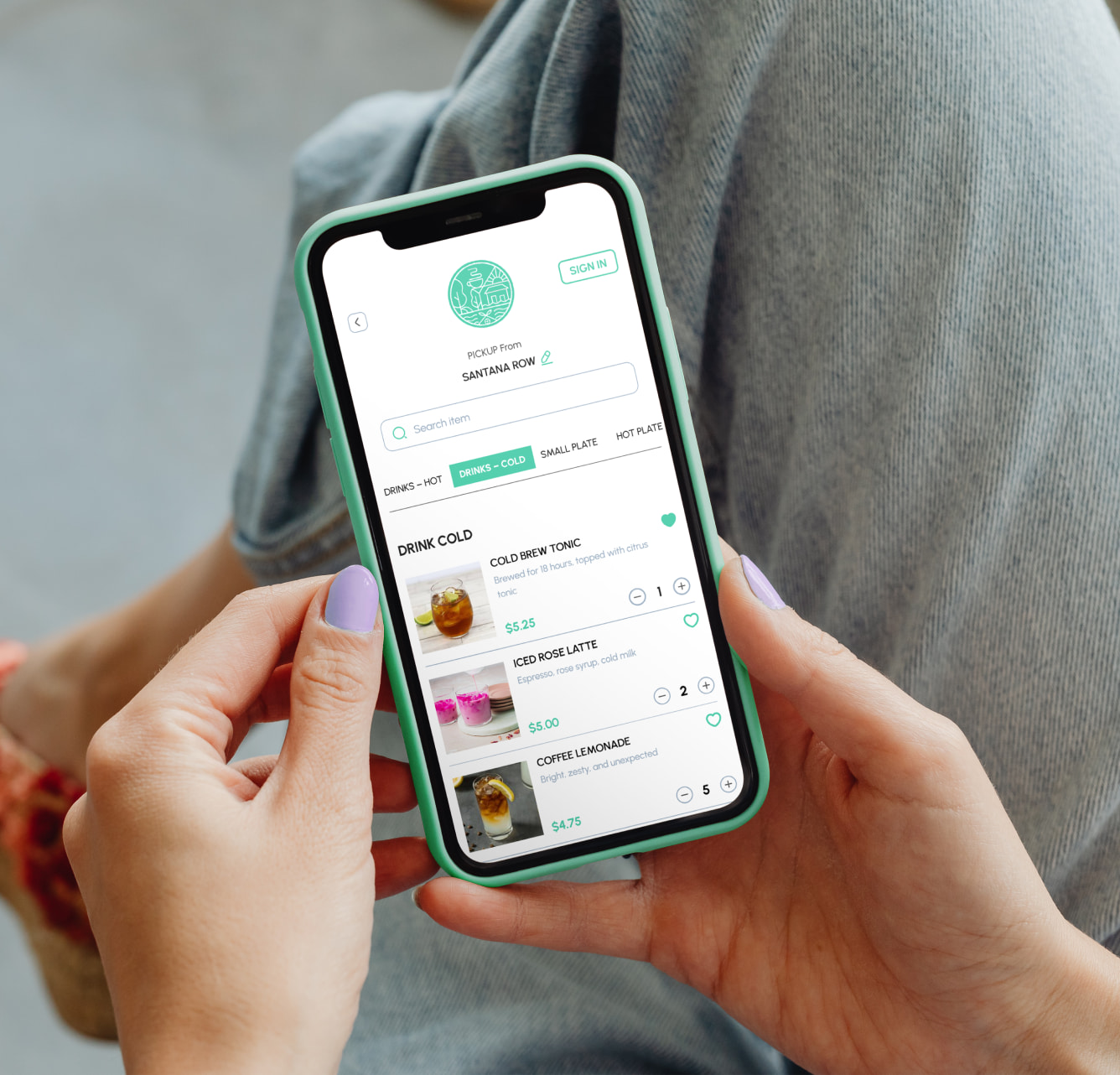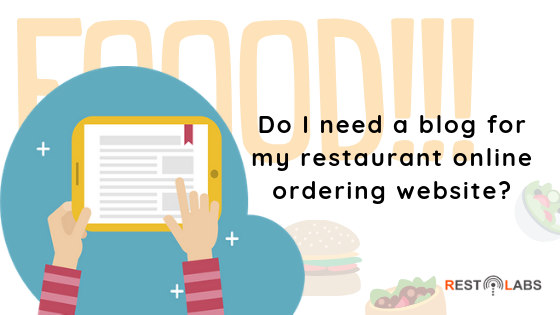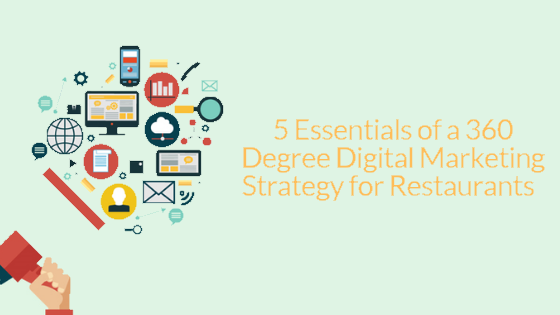Key Takeaways
In today's digital-first world, restaurant owners often find themselves caught between traditional hospitality and the pressing need for online visibility. With competitors strengthening their web presence and customers increasingly searching online before making dining decisions, the pressure to stand out has never been greater. If you're feeling overwhelmed by digital marketing options or anxious about losing customers to competitors with stronger online strategies, you're not alone. To learn more about how to improve your online presence, check out our guide on digital marketing for restaurants.
A restaurant blog can significantly boost your online success by improving search engine optimization (SEO), building customer loyalty, and establishing a strong brand presence. It provides a platform to share valuable content, engage with customers, and ultimately drive more traffic to your restaurant website and online ordering system. For more information on the importance of blogging for restaurants, read our article on why restaurant marketing is crucial.
What is Restaurant Blogging and How Does it Work?
Restaurant blogging is the practice of regularly publishing relevant content on your restaurant's website. In simple words, it's content you write and publish with the purpose of attracting visitors through search engines, educating them about your offerings, and building trust and credibility with your audience.
The formula is straightforward: More content = Happy search engines = Increased visitors. To maximize your online ordering potential, consider integrating your blog with your restaurant website and online ordering system.
Every time you publish new content on your website, you increase the likelihood of being discovered online. Would you rather have 5 pages indexed on Google or hundreds? Blogging ensures that your restaurant shows up in search results when hungry people are looking for dining options. Learn how to build a compelling online presence to attract more customers.
Imagine a group of friends in Denver wanting to order authentic Chinese food on a Friday evening. They want to try something new, so they turn to Google. Search engines give higher ranking to businesses that frequently update their website with fresh, relevant content. Improve your restaurant SEO to increase your online visibility.
The secret to effective restaurant blogging is publishing relevant, unique, and informative content with appealing images and appropriate meta tags. These meta tags help search engine crawlers discover your website and index it under relevant categories. When someone searches for "Authentic Chinese Order Online in Denver," your business is more likely to appear on the first page if your content matches what they're looking for. Discover how to attract more customers to your restaurant.
Key Benefits of a Restaurant Blog
Not sure whether restaurant blogging would benefit your business? Here are the compelling advantages that will have you jumping on the blogging bandwagon:
Boost Search Engine Rankings with Fresh Content
If you thought that having a couple of pages with an online food ordering system would be enough to increase sales from your website, you might want to reconsider your strategy. Check out our article on whether you need a blog for your restaurant online ordering website.
Google doesn't favor static websites. In a constantly evolving world, search engines want to present their users with the most updated content possible. They prioritize businesses that genuinely want to connect with their audience, and creating quality content is the most effective way to keep search engines happy. Learn how to reach millennials and boost restaurant sales through effective blogging.
Enhance Your Social Media Presence
The restaurant industry is inherently social, making shareable content perfect for staying connected with existing customers and introducing yourself to new ones. Your restaurant blog provides a platform to connect with customers on a deeper level through engaging stories and appetizing images. Quality blog content provides excellent material for social media, where it can be easily liked and shared.
Collect and Leverage Customer Data
The main goal of creating compelling, quality articles is to drive sales by educating guests about your establishment even before they visit. If your blog posts are intriguing, interesting, and thought-provoking, customers are more likely to willingly share their email addresses with you. You can use this data to send newsletters, personalized deals, and special offers that entice them to order directly from your website.
Build Brand Awareness and Customer Loyalty
A restaurant blog gives you the perfect platform to share your unique story, highlighting your values, cuisine philosophy, and atmosphere. This storytelling helps you stand out from competitors and creates an emotional connection with customers. Learn more about how to attract more customers and build loyalty.
Drive More Traffic to Your Website
Every blog post you publish creates another entry point to your website. When potential customers search for recipes, dining tips, or food-related information that relates to your content, they may discover your restaurant through these searches. Improve your restaurant SEO to drive more traffic to your website.
How to Integrate Your Blog with Your Restaurant Website and Online Ordering System
For maximum impact, your restaurant blog should work seamlessly with your website and online ordering system. Here's how to create an integrated approach that drives both engagement and sales:
- Strategic placement of ordering links - Include call-to-action buttons within blog posts that lead directly to your online ordering page. For example, after describing a signature dish in a blog post, add a "Order Now" button.
- Cross-promotion between systems - Use your online ordering confirmation emails to promote your latest blog posts, and use your blog to highlight special online ordering promotions.
- Consistent branding - Ensure your blog visually matches your ordering system and main website for a seamless customer experience.
- Customer account integration - Allow customers to use the same login for commenting on your blog and placing orders, creating a unified experience.
- Data sharing between platforms - Use customer preferences gathered from your ordering system to suggest relevant blog content, and vice versa.
With Restolabs' restaurant website features, integrating your blog with your online ordering system becomes simple and effective. The platform allows you to maintain complete ownership of your customer data while providing a seamless experience across all digital touchpoints.
Restaurant Blog Content Ideas to Engage Your Audience
Wondering what to write about on your restaurant blog? Here are some engaging content ideas that will resonate with your audience and showcase your restaurant's unique personality:
The key is to create content that reflects your brand's voice while providing value to your readers. Mix informational posts with entertaining stories, and always include high-quality images to make your content more appealing and shareable.
Measuring the Impact of Your Blog on Restaurant Sales
To ensure your restaurant blog is delivering real business results, you need to track and measure its performance. Here are key metrics and methods to evaluate your blog's impact on your restaurant's bottom line:
- Website Traffic Analysis - Use tools like Google Analytics to track how many visitors your blog attracts, which posts perform best, and how long visitors stay on your site.
- Conversion Tracking - Monitor how many blog readers click through to your online ordering system and complete purchases. Set up conversion goals in your analytics platform to track this journey.
- Email Subscription Growth - Measure how your blog contributes to growing your email list, which becomes a valuable marketing channel for direct promotions.
- Social Media Engagement - Track shares, comments, and likes on blog content shared to social platforms to gauge audience interest and reach.
- Customer Surveys - Periodically ask customers how they discovered your restaurant to determine if your blog is driving awareness and first-time visits.
- Promo Code Tracking - Create blog-specific promo codes for online orders to directly attribute sales to blog content.
By consistently analyzing these metrics, you can refine your content strategy to focus on the topics and formats that most effectively drive customer engagement and sales. Remember that building a successful blog takes time, so be patient and look for trends over months rather than days or weeks.
Take Your Restaurant Online with Restolabs
Ready to boost your restaurant's online presence with a powerful combination of blogging and commission-free online ordering? Restolabs offers a comprehensive solution that puts you in control of your digital strategy. Learn more about digital marketing for restaurants and how to improve your online presence.
Our platform enables you to create a seamless experience for your customers—from discovering your engaging blog content to placing orders directly through your website without the hefty commissions charged by third-party services
With Restolabs, you'll maintain complete ownership of your valuable customer data, integrate easily with your existing POS and payment systems, and start selling online within a day.
Don't let your restaurant become invisible in the digital landscape. Join over 2,000 restaurants across 10+ countries who are growing their business with Restolabs' user-friendly platform.
Schedule a demo today and discover how our commission-free online ordering system can complement your restaurant blog strategy to drive sustainable growth for your business.
Frequently Asked Questions
Yes—blogs attract organic traffic, educate diners, and funnel readers to your direct ordering pages.
Aim for weekly or bi-weekly; consistency and quality beat volume.
Menu stories, chef/behind-the-scenes, seasonal updates, local partnerships, customer spotlights, simple recipes, and FAQs.
Track organic traffic, rankings, CTR to ordering, conversions, email signups, social engagement, and promo-code orders.


.gif)

.png)
.png)
.png)




